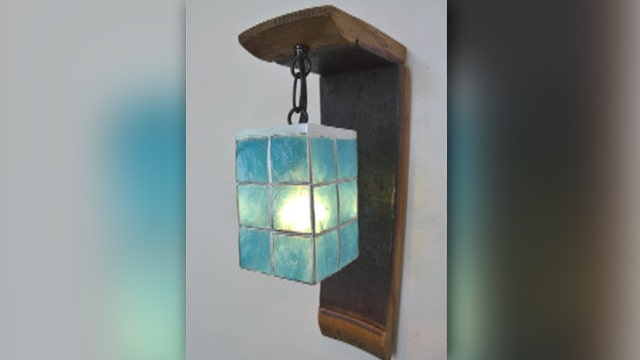'Upcycling' Trend Turns Trash Into Treasure
There’s a new trend sweeping through small business. It’s called "upcycling," and it’s saving the consumers money and helping small businesses gain an edge in the market.
Upcycling gives recycled goods another chance – reinventing them for another use.
Startups and small businesses like Two Blokes on a Bus are capitalizing on the trend. Two Blokes on a Bus revived a 1950’s double-decker bus from London, using it as a food truck in Illinois with sit-down dining up top.
Even payphones are getting a touch-up in NYC, popping up as Wi-Fi hotspots.
These “re-ventions” are part of a growing trend that’s seen a big spike in interest, in part thanks to sites like Etsy and Pinterest. More than five million home décor ideas are pinned daily on Pinterest alone.
The practice has also become a popular trend among online bloggers who offer D.I.Y. tips to their viewers. Marian Parsons, who runs a popular design and D.I.Y. blog missmustardseed.com, is among many who share their projects and professional tips online.
She says the trend gives people the opportunity to think outside the box.
“I think that's resonating with a lot of people, which is why it's become so popular on Pinterest and why D.I.Y. home and blogs are growing at the rate their growing," she explains. "People like upcycling for different reasons. People like it because of the environmental aspect - you're saving something that might have gone to a landfill. And for some people like me, it's about budget."
Upcycling has also brought fresh faces into traditional secondhand stores, appealing to younger generations. Restore, which is run by Habitat for Humanity in Southeast New Hampshire, sells donated household items like furniture, appliances and décor so they can be given a lift. Restore says they sell around 100 items per day that are used for D.I.Y. projects. Right around the corner from Restore, Woodcraft manger Mark Nelson says he helps people bring their D.I.Y. dreams to life.
"There are a lot of people out there that have said we've done this all along, what's so new about it -- well for a lot of people it is new, so we just got to give them the opportunity to see how you can take something that was put aside, discarded and bring it back to life again," says Nelson. “It's a good way for some of us to take care of the planet, that's the biggest thing."




















